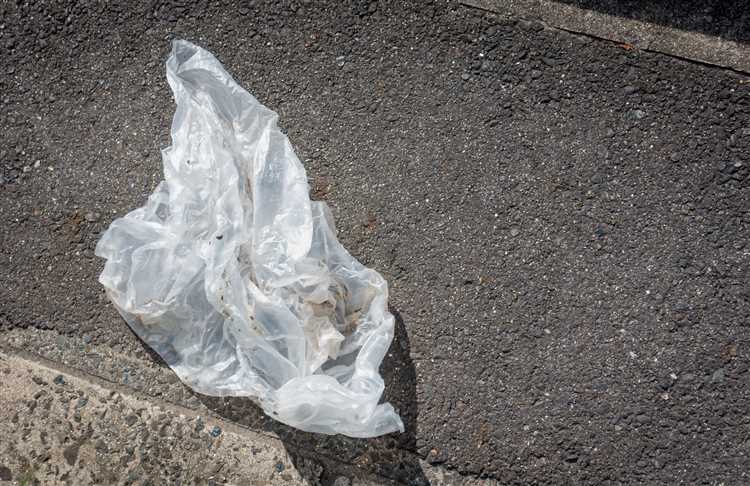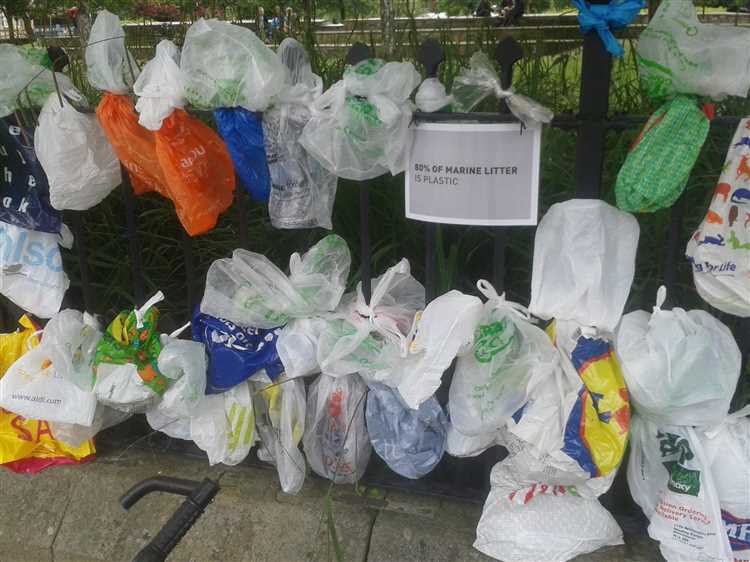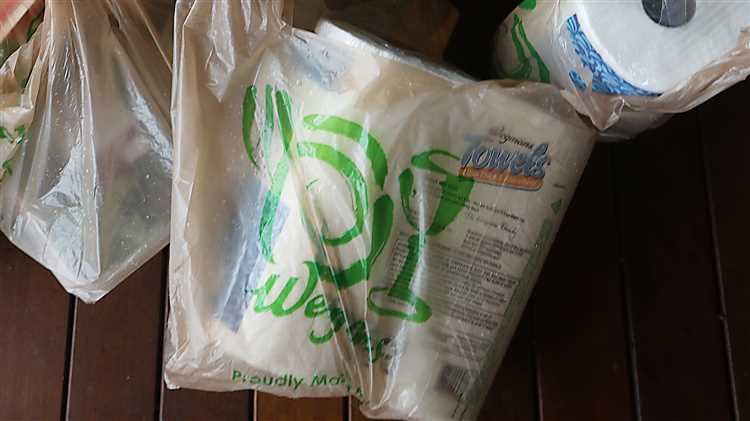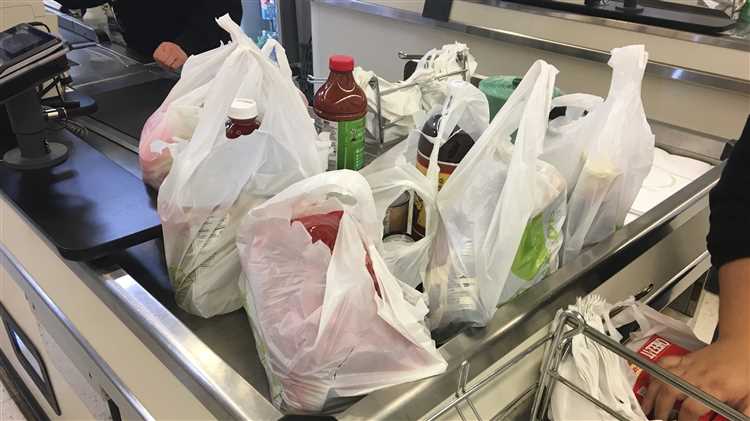Pennsylvania, known for its picturesque landscapes and thriving cities, has long been concerned about the impact of plastic bags on the environment. The state has been taking steps to reduce plastic bag waste and promote sustainability initiatives. However, unlike some other states, there is currently no statewide ban on plastic bags in Pennsylvania.
Despite the absence of a statewide ban, several municipalities and cities within Pennsylvania have implemented their own restrictions on plastic bags. For example, the city of Philadelphia implemented a ban on single-use plastic bags at large retailers in 2020, aiming to reduce their negative environmental impact. This ban applies to retailers that have more than 250 locations worldwide or have $1 million or more in gross annual sales.
Moreover, other municipalities, such as Pittsburgh and Bethlehem, have also considered implementing similar restrictions on plastic bags. This growing trend indicates that Pennsylvania communities are recognizing the need to take action against plastic bag pollution.
While there is no statewide plastic bag ban in place at the moment, it is essential to note that individual businesses can voluntarily choose to reduce or eliminate their use of plastic bags. Many grocery stores and retailers in Pennsylvania have opted for more sustainable alternatives, such as paper bags or reusable bags, to help minimize their environmental footprint.
In conclusion, although Pennsylvania does not yet have a statewide ban on plastic bags, several local governments and businesses are taking steps to reduce plastic bag waste and promote sustainable alternatives. The efforts of these communities are indicative of a growing awareness and commitment to protecting the environment for future generations.
- Overview of plastic bag laws in Pennsylvania
- Local ordinances
- Importance of plastic bag regulations
- Current status of plastic bag regulations in Pennsylvania
- Effects of plastic bag usage on the environment
- 1. Pollution
- 2. Resource depletion
- 3. Landfill overcrowding
- 4. Carbon footprint
- The impact of plastic bag laws in other states
- 1. Reduction in plastic bag usage
- 2. Changes in consumer behavior
- Question-answer:
- Is there a ban on plastic bags in Pennsylvania?
- What cities in Pennsylvania have banned plastic bags?
- Why hasn’t Pennsylvania implemented a plastic bag ban?
- Are there any alternatives to plastic bags in Pennsylvania?
Overview of plastic bag laws in Pennsylvania

Pennsylvania currently does not have a statewide ban on plastic bags. However, some local governments within the state have implemented their own restrictions on single-use plastic bags in an effort to reduce plastic waste and promote environmental sustainability.
Local ordinances
Several cities in Pennsylvania have passed local ordinances aimed at reducing the use of plastic bags. For example, Philadelphia, the largest city in the state, enacted a ban on single-use plastic bags in retail establishments in July 2020. The ban requires retailers to provide alternative bags, such as reusable or paper bags, to customers at a nominal fee. Violations of the ban can result in fines for non-compliant retailers.
In addition to Philadelphia, other municipalities in Pennsylvania, including Pittsburgh and State College, have also implemented their own plastic bag regulations. These regulations vary by city and may include bans, fees, or other restrictions on the use of plastic bags.
Importance of plastic bag regulations
Plastic bag regulations play a crucial role in reducing plastic waste and preventing environmental harm. Single-use plastic bags are a significant source of litter and can have detrimental effects on wildlife and ecosystems. By implementing restrictions on their use, Pennsylvania cities are taking steps to mitigate the negative impacts of plastic bags and encourage more sustainable practices.
Furthermore, plastic bag regulations can also promote the use of reusable bags, which are more environmentally friendly alternatives. Reusable bags are often made from durable materials like cotton, canvas, or recycled plastics, and can be used multiple times, reducing the need for single-use bags.
It is important for individuals and businesses in Pennsylvania to understand and comply with the plastic bag regulations in their respective jurisdictions. By doing so, they can contribute to the overall efforts to reduce plastic waste and protect the environment for future generations.
Conclusion
While Pennsylvania does not currently have a statewide ban on plastic bags, the state has seen the implementation of local ordinances in various cities. These ordinances aim to reduce the use of single-use plastic bags, promote alternative bag options, and encourage more sustainable practices. It is important for individuals and businesses to be aware of and comply with these regulations to help achieve a cleaner and more environmentally friendly Pennsylvania.
Current status of plastic bag regulations in Pennsylvania
Pennsylvania currently does not have a statewide ban or fee on plastic bags. However, individual municipalities in the state have taken actions to address plastic bag usage.
A number of cities and counties in Pennsylvania have implemented their own plastic bag regulations. For example, Philadelphia has enacted a ban on single-use plastic bags, which went into effect on July 1, 2021. Under this ban, retailers are prohibited from providing customers with thin, single-use plastic bags at checkout. Instead, they must offer reusable or paper bags for a fee.
In addition to Philadelphia, other municipalities in Pennsylvania have also implemented their own plastic bag regulations. Some have enacted plastic bag bans, while others have implemented fees on single-use plastic bags. However, the specific regulations vary by location, so it is important for individuals to check the regulations in their specific area.
It is worth noting that there have been efforts to pass statewide legislation regarding plastic bag regulations in Pennsylvania. Several bills have been introduced in the state legislature, but as of now, none have been passed into law. This means that the regulations regarding plastic bags remain at the local level.
Overall, while Pennsylvania does not currently have a statewide ban or fee on plastic bags, various municipalities have taken their own actions to address plastic bag usage. It is important for individuals to be aware of the regulations in their specific area and to support initiatives aimed at reducing plastic bag waste.
Effects of plastic bag usage on the environment

Plastic bags are a common sight in grocery stores, convenience stores, and shops all over the world. However, their convenience comes at a significant cost to the environment. The excessive usage of plastic bags has a range of negative effects on our planet, including:
1. Pollution
Plastic bags are a major contributor to pollution, particularly in bodies of water. When they are not properly disposed of, they can end up in rivers, lakes, and oceans, where they pose a serious threat to marine life. Sea turtles, fish, and birds are at risk of consuming or getting entangled in these bags, leading to injury or death.
2. Resource depletion
The production of plastic bags requires a significant amount of resources, including petroleum. As a non-renewable resource, the extraction and processing of petroleum have detrimental effects on the environment, such as habitat destruction and air pollution. The more plastic bags we use, the greater the demand for petroleum, further exacerbating these issues.
3. Landfill overcrowding

Plastic bags are not biodegradable, meaning they do not break down over time. Instead, they accumulate in landfills, taking up valuable space. As landfills reach capacity, the need for new ones increases, resulting in the destruction of natural habitats and potential contamination of soil and water sources.
4. Carbon footprint
The production, transportation, and disposal of plastic bags contribute to greenhouse gas emissions, particularly carbon dioxide. These emissions contribute to climate change, causing long-term negative effects on the environment, such as rising temperatures, extreme weather events, and melting ice caps.
To mitigate these effects, many regions, states, and countries have implemented regulations or policies to reduce plastic bag usage. By encouraging the use of reusable bags or promoting the switch to alternative materials, we can collectively work towards a cleaner and more sustainable future.
The impact of plastic bag laws in other states
Plastic bag laws have been implemented in several states across the United States with the aim of reducing plastic waste and promoting environmental sustainability. These laws have had varying degrees of success in achieving their goals, but overall they have made a significant impact on reducing the use of plastic bags and encouraging the use of reusable alternatives.
1. Reduction in plastic bag usage
One of the most significant impacts of plastic bag laws is the reduction in plastic bag usage. Studies have shown that in states where these laws have been implemented, there has been a considerable decrease in the number of plastic bags used by consumers. This decrease can be attributed to a combination of factors, including the introduction of fees or taxes on single-use plastic bags, as well as the increased availability and promotion of reusable bags.
2. Changes in consumer behavior

Plastic bag laws have also been successful in changing consumer behavior. By making it more inconvenient and costly to use single-use plastic bags, these laws have encouraged individuals to bring their own reusable bags when shopping. This shift in behavior has not only reduced plastic waste but has also created a culture of sustainability and environmental consciousness.
In addition, plastic bag laws have prompted retailers to offer more sustainable alternatives and encourage their customers to opt for reusable bags. This has further contributed to the change in consumer behavior and has made reusable bags a more mainstream and socially acceptable choice.
Overall, the impact of plastic bag laws in other states has been positive in terms of reducing plastic waste and promoting the use of reusable alternatives. While there may be initial resistance and challenges in implementing such laws, the long-term benefits far outweigh the short-term inconveniences. These laws have paved the way for a more sustainable future and serve as a reminder of the importance of individual actions in protecting the environment.
Question-answer:
Is there a ban on plastic bags in Pennsylvania?
Currently, there is no statewide ban on plastic bags in Pennsylvania. However, some individual cities and towns have implemented their own regulations regarding the use of plastic bags.
What cities in Pennsylvania have banned plastic bags?
Several cities in Pennsylvania have banned or placed restrictions on plastic bags. Some examples include Pittsburgh, Philadelphia, State College, and Easton.
Why hasn’t Pennsylvania implemented a plastic bag ban?
The decision to implement a plastic bag ban rests with the state legislature. So far, there has been no consensus among lawmakers regarding the need for a statewide ban. Some argue that a ban would limit consumer choice and negatively impact businesses, while others believe it is necessary to reduce plastic waste and protect the environment.
Are there any alternatives to plastic bags in Pennsylvania?
Yes, there are several alternatives to plastic bags available in Pennsylvania. Many stores offer reusable bags made from materials such as cotton, canvas, or recycled plastic. In addition, some people choose to use paper bags or bring their own bags from home when shopping.